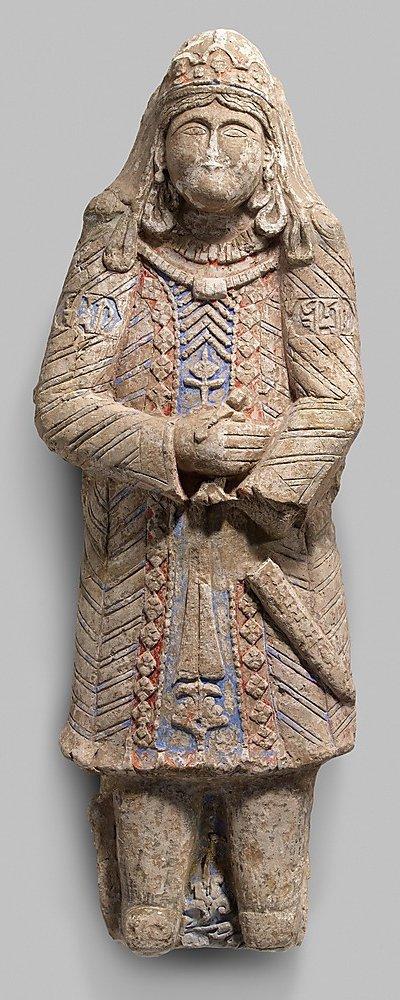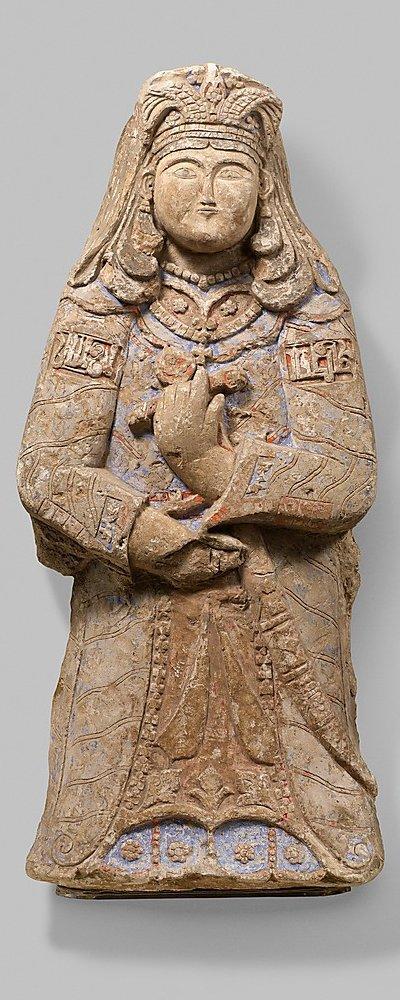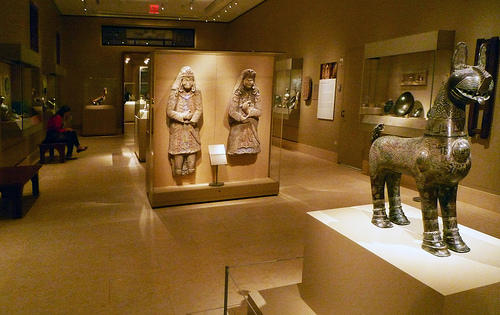
Find the perfect fit with Amazon Prime. Try Before You Buy.
Seljuk Stucco Figures,
mid-11th century-mid-12th century.
 A larger image of this Seljuk Stucco Figure |
 A larger image of this Seljuk Stucco Figure |
|
These large polychrome stucco sculptures of princely figures probably once served as a centerpiece of a more extensive composition of stucco revetments in an Iranian palace complex. Audience halls decorated with painted murals of similar figures were found in Lashkari Bazar (Afghanistan) and Merv (Turkmenistan). The figures have round Turkic "moon faces," fashionable in eastern and western Iran. They each wear a robe under an embroidered and highly embellished coat, or kaftan, with a tiraz inscription band on the upper arm. The elaborate and partly gilded diadems and magnificent large sabres point to royal imagery. | |
|
Princely Figure with Jewelled Crown Date: mid-11th–mid-12th century Geography: Iran Culture: Islamic Medium: Stucco; modeled, carved, polychrome painted, gilded Dimensions: H. 143.5 cm, W. 51.5 cm, from the bottom of the coat to the top of the crown: 115 cm Accession Number: 67.119 |
Princely Figure with Winged Crown Date: mid-11th century–mid-12th century Geography: Iran Culture: Islamic Medium: Stucco; modeled, carved, polychrome painted, gilded Dimensions: H. 119.4 cm, W. 52.1 cm, from the bottom of the coat to the top of the crown: 116.8 cm Accession Number: 57.51.18 |

Seljuk Illustrations of Costume & Soldiers